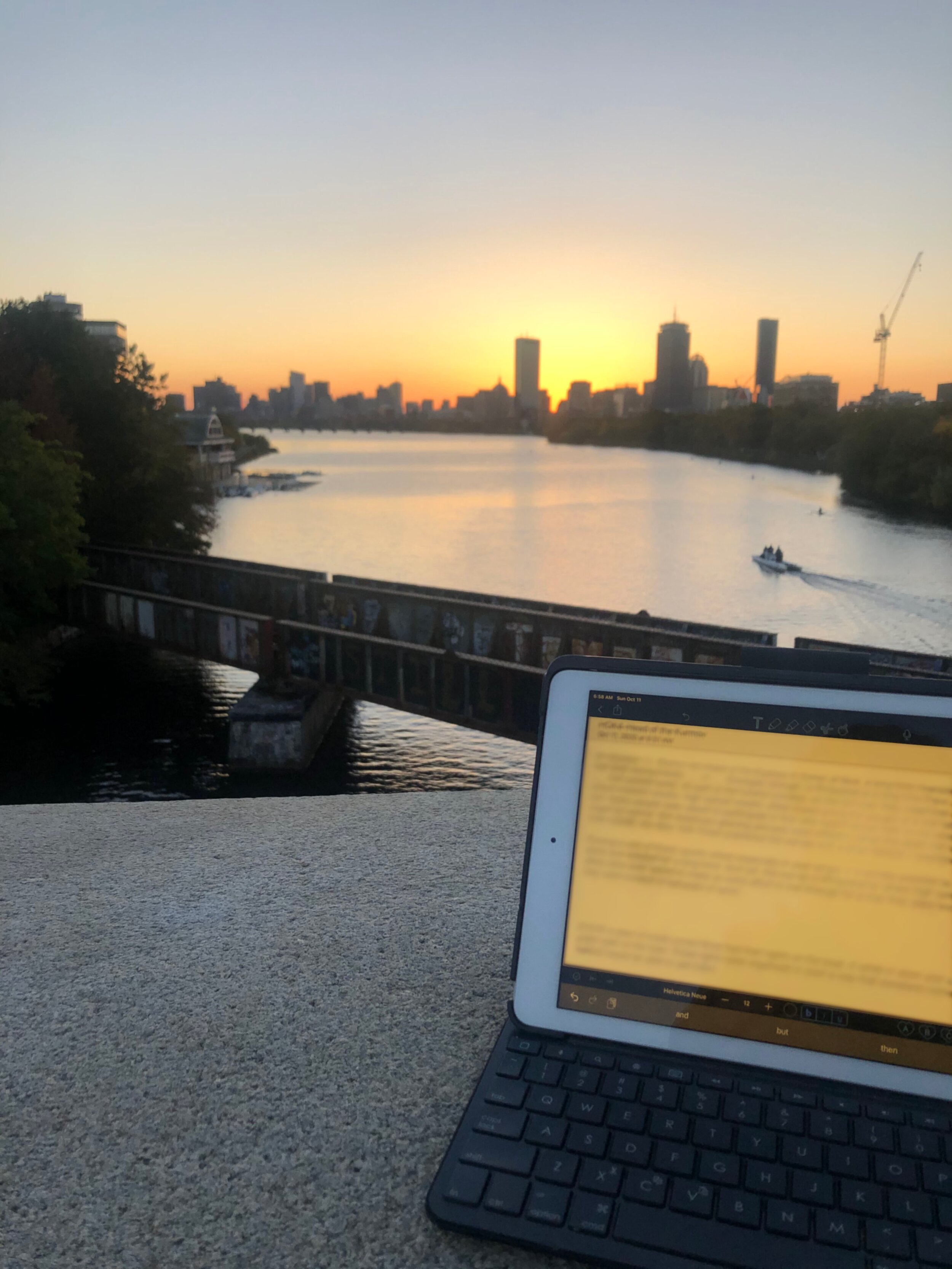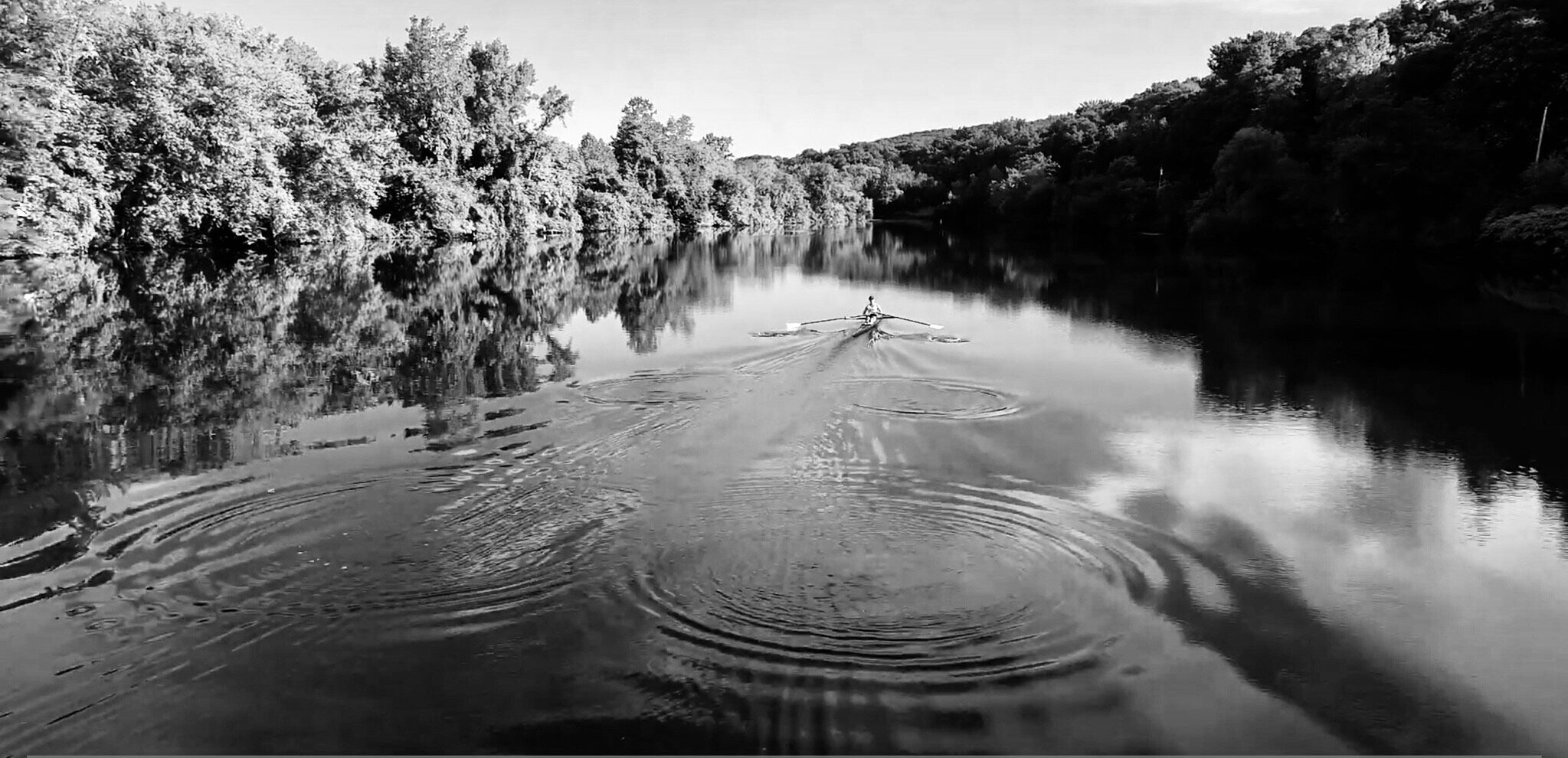A little about MJ’s journey
There was no formal application and no invitation. No recruitment. No interview. There was no money in lightweight rowing. It was a calling that very few Americans heard and fewer decided to pursue. My path to race in lightweight rowing started simply: a dream on a cold winter night in Cleveland, Ohio. A hazy vision of two oars going into the water. It was a distant echo from rowing in college.
It ignited angst inside of me. 7 months after I graduated, I got a text from a coach, “How are you doing? Still thinking of going lightweight?”
Lightweight rowing. A new world. I didn't know anyone who had done it. I did know that I would have to row in a single boat, by myself. Something I had done less than a handful of times, and only casually, not at full throttle for 8 minutes. It was an entirely different style of rowing: two oars instead of one. No team, not at first anyway. And the whole “lightweight” thing? I didn’t know it was a thing. I knew I was pretty short compared to other rowers, but still pretty good. I also knew that I hadn’t weighed 130 pounds since I was in 8th grade. Where I grew up and rowed, racing lightweight wasn’t an option.
On the surface, the text sounded light and casual. Maybe it was meant that way...but to me, it was not. It was the invitation to begin the most grueling training, of aspiring to greatness, of beginning a journey of deep challenge and struggle. A nudge, a reminder of how far I’d come, and how much further there was to go.
The past year showed me that I could do impossible things. I had a taste of training like an elite athlete: the pain, the pride, the joy. I wanted more.
I stressed about it. I took long frigid walks thinking about what it would mean to get up earlier, to give up my free time...but the truth was; I was bored. I was restless. I was hungry for something more. My fingers shook as I dialed the numbers of a few coaches. I thought about what it would mean to move to Philadelphia, DC, or Boston. I didn’t want to move. I was building a life in the Midwest. I wondered if I could begin this in Cleveland. I wondered if any of this was even possible. I was coming off of a debilitating injury from that fall which had left me hobbling for a few weeks and shelling out hundreds of dollars I did not have for physical therapy. There was no boat for me to row. There was no coach. The Cuyahoga River, which had caught fire 13 times between 1868-1969, was frozen over at that moment. But a fire blazed inside of me; if I were to do this, I would have to transition from rowing team boats to rowing by myself. Within all of this, I believed it could happen.
It did. The pieces came together. A boat appeared. A world class coach happened to move to Cleveland. For 2 years I trained in the midwest. I saw parts of the US I never would have had access to without the sport: Boston from the Charles River, Detroit at dawn. South Carolina at sundown. I felt the wake from a tugboat. I became a regular on the lake with the fishermen. It was a time where I faced seemingly impossible difficulties: lose 10 pounds in 10 days in order to compete at my first national selection event. Find and borrow a multi-thousand dollar boat for nearly free because I was an underpaid young 20’s professional. I won by myself. I lost by myself. It is the ultimate mental challenge because there are so many variables that can influence how one attains speed: training, weather, physics, and team dynamics. It is a balance between power and finesse.
Rowing ultimately is a team sport. The Olympic lightweight event is the double. I was the only female lightweight athlete in the midwest training at my level. So I reached out. I found the most compelling and kind, but fierce athletes. Lightweight rowing had no formal training center, so each athlete was doing it her own way: in Florida, in Pennsylvania, in California, in Connecticut, in Washington. Lightweight rowing showed me how individuals create success with limited resources. Being our own biggest supporters and competitors showed me how ultimate competition is not cutthroat but elevates all. Rowing revealed the beauty of the rain, of the cold, of pushing your body past its limit, of being present, of losing, and of winning.
I came to realize that the best way I can contribute to this sport is through a new perspective. I took a step back from training to learn from the strongest lightweight women in the country. I asked challenging questions that elite athletes ponder on a daily basis around training, fitness, health, nutrition, relationships, life, and success.
This is not my story, but theirs.



